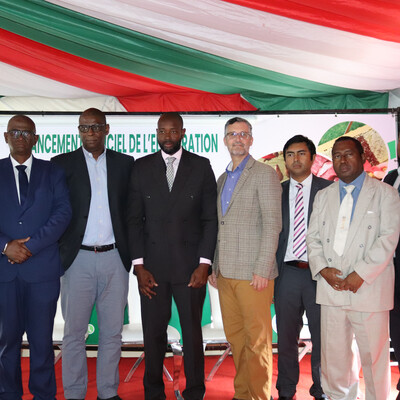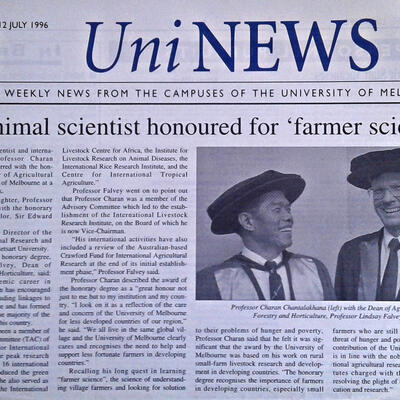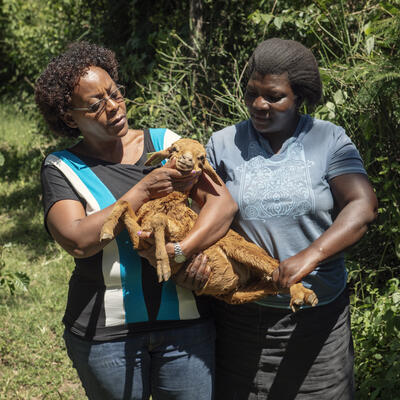
ACGG Nigeria baseline data report now available
The African Chicken Genetic Gains (ACGG) project conducted a baseline survey in 2015-2016 across ACGG countries (Ethiopia, Nigeria and Tanzania) to understand, define and characterize the current smallholder chicken production system, chicken ecotypes, current productivity, husbandry practices, farmer production objectives and socio-economic status of smallholder chicken keepers. This post introduces the Nigeria baseline report.
The baseline survey was conducted in 60 rural villages of Nigeria. Random study villages were selected in Kwara, Rivers, Imo, Nasarawa and Kebbi states (described in the project as ‘subnational zones’). The study covered 1,257 households. Following the description of the survey design and tools, the study presents the main findings including rank-index, tables, and graphs.
Key baseline results
General profile:
- Only 26.4% of the sampled households were female-headed.
- The average number of years of schooling, family size and age of the household head was 7.8, 6.5, and 44.45, respectively.
Poultry development and strain trait preferences:
- The mean chicken flock size per household was 28 chickens.
- Eighty-eight per cent (88%) of households had experience of providing supplementary feeding (i.e. any feed that was not scavenged) to their chickens at any time of the year.
- The preferred traits for good cockerels were good physical appearance, better meat taste, large body size, and less illness.
- The preferred traits for good hens were production of more eggs, producing chicks with high survival rate, and less illness.
- Chickens are kept for multiple purposes, with egg consumption and live adult chicken sale rated highest.
Income and ownership:
- The average quarterly household income from all sources were low in Kwara State (NGN 28,738, about USD 80) and highest in Rivers State (NGN 52,064).
- The overall average quarterly income of households from all sources was about NGN 34,154 .
- The contribution of poultry to total household income was 48.4%.
- Seventy-nine per cent (79%) of households said crop farming was their major source of livelihood, followed by livestock keeping and poultry keeping.
- Chickens were owned by males or females or jointly. The most common livestock ownership pattern depended on the type of livestock they owned: goats, ducks and guinea fowl are mostly owned by women whereas cattle, sheep and donkey were mostly owned by men.
- Men owned more farm and household assets, although joint ownership was significantly higher than individually-owned assets.
- Livestock amounts to 6.69% of total household assets on average for the entire sample.
Food and nutrition security:
- Respondents reported that they had enough food in the last 12 months (respectively for 95% in Kwara State; 89% in Rivers State; 85% in Imo State, 59% in Kebbi State and 40% in Nasarawa State).
- Overall, 74% of the respondents reported that they had adequate food in the last 12 months for their household.
- Most households in the project subnational zones have acceptable Food Consumption Scores (FCS) of more than 35.
- The dietary diversity score indicated was found to be higher for children than for men and women.
Chicken and egg consumption (in the three months leading up to the survey):
- Chicken consumption is highest in Rivers subnational zone (four birds per quarter) and it is lowest in Kwara subnational zone (three birds).
- The general average across the zones shows households consumed on average 3.85 birds every 3 months.
- Egg consumption was high in Imo (32 eggs per quarter) and low in Kebbi (5 eggs). Average egg consumption across zones was 15 eggs per 3 months.
Labour allocation:
- Adult women spend, on average, 94.26 minutes per week for chicken activities.
- Adult men, at 46 minutes per week (7 min/day), spend more time than children and hired labour.
- Seventy-six per cent (76%) of households reported that money accrued from sale of chickens was used for covering household basic needs.
The information from the baseline survey informed the design and implementation of the longitudinal (on-farm) study. It is also hoped that the information in baseline report can support future chicken research and development activities. In addition, the procedures followed and the baseline tools developed can be adapted for similar purposes outside ACGG subnational areas. Finally, the data provides a useful reference to study similar cases.
Read the full Nigeria baseline report online: http://hdl.handle.net/10568/96559


















